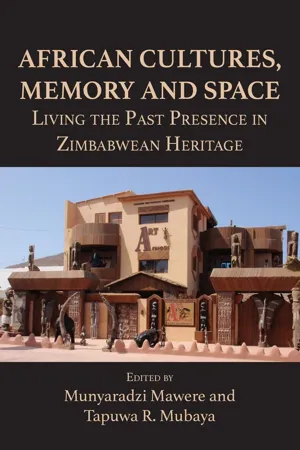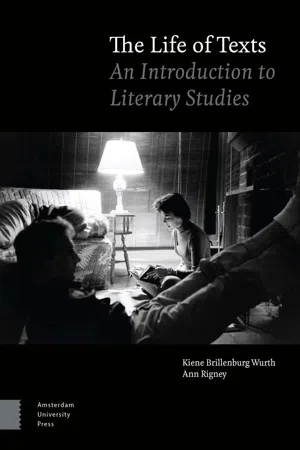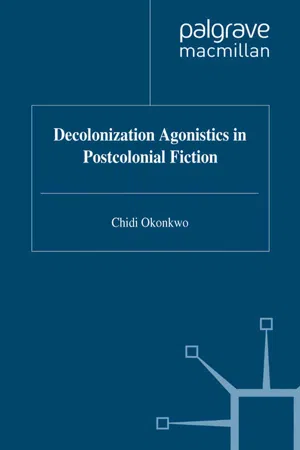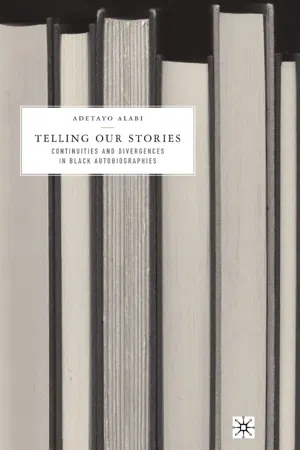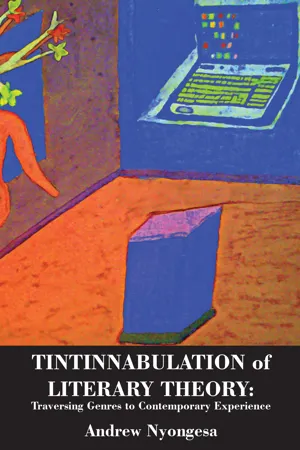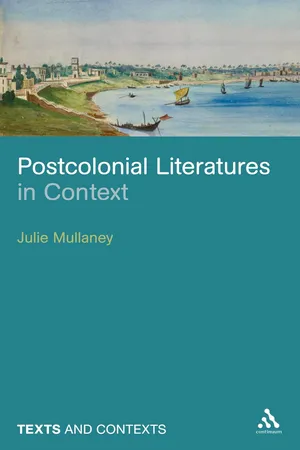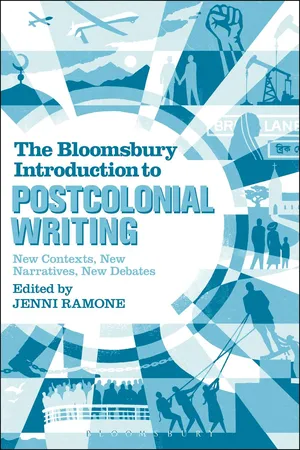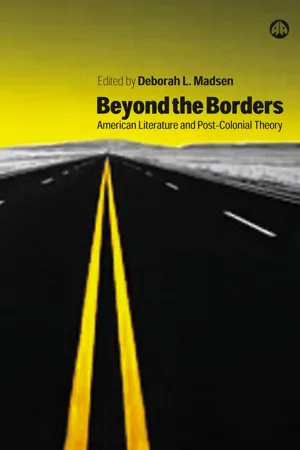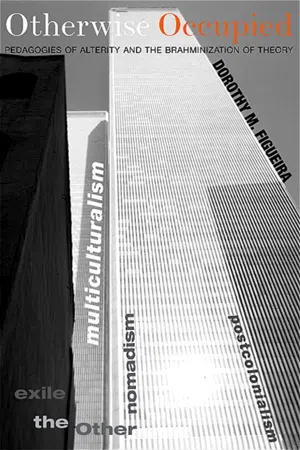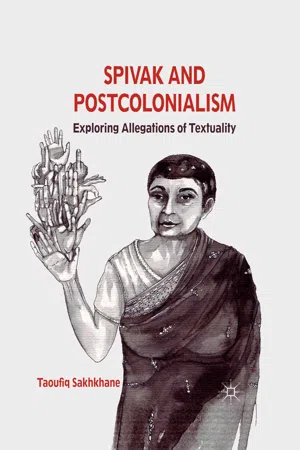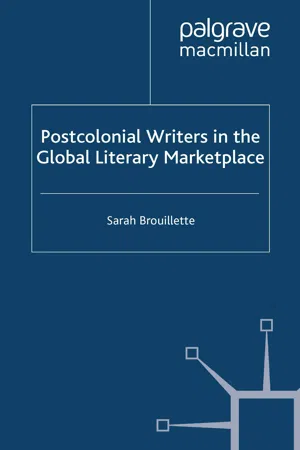Literature
Postcolonial Literature
Postcolonial literature refers to literary works produced in countries that were once colonized by European powers. It often explores themes of identity, cultural hybridity, and the impact of colonialism on society. Postcolonial literature seeks to challenge and subvert colonial narratives, offering diverse perspectives and voices from the formerly colonized regions.
Written by Perlego with AI-assistance
Related key terms
1 of 5
12 Key excerpts on "Postcolonial Literature"
- eBook - PDF
Mawere: African Cultures, Memory and Space
Living the Past Presence in Zimbabwean Heritage
- Munyaradzi Mawere, R. Mubaya, Munyaradzi Mawere, R. Mubaya(Authors)
- 2014(Publication Date)
- Langaa RPCIG(Publisher)
3 Griffiths and Tiffin define literary post-colonialism in the following terms: We use the term ‘postcolonial’…to cover all the culture affected by the imperial process from the moment of colonization to the present day. This is because there is a continuity of preoccupations throughout the historical process initiated by European imperial aggression. We also suggest that it is most appropriate as the term for the new cross-cultural criticism which has emerged in recent years and for the disclosure through which this is constituted…What each of these literatures has in common beyond their special and distinctive regional characteristics is that they emerge in their present form out of the experience of colonization and the tension with the imperial power, and by emphasizing their differences from the assumptions of the imperial center. It is this which makes them distinctively postcolonial (2) The crux of the excerpt above is the fact that writers in post-colonies tend to respond to colonial legacy by writing back to the imperial center from the empire in a bid to express alterity. Thus, the struggle for self-definition and self-determination constitutes the inevitable trajectory toward collective liberation. This comes about as the ex-colonized begin to write their own histories and literatures using the ex-colonizer’s language (English, French, Portuguese, and other European languages) for their own purposes. Postcolonial Literatures call into question some of the assumptions associated with the colonial era, notably notions of language, culture and nationhood. As Ashcroft, Griffiths, and Tiffin contend, “The idea of postcolonial literary theory emerges 4 from the inability of European theory to deal adequately with the complexities and varied cultural provenance of postcolonial writing” (11). This theoretical deficiency marks the beginning of what Nigerian writer, Wole Soyinka, has characterized as the “process of self-apprehension” (1976: xi). - eBook - PDF
The Life of Texts
An Introduction to Literary Studies
- Ann Rigney, Kiene Brillenburg Wurth(Authors)
- 2019(Publication Date)
- Amsterdam University Press(Publisher)
(But as we have seen, even academic observations are embedded in cultural schemata from which we cannot escape.) Precisely such essentialism often pre-vented the Other from speaking back to the power centre that ruled and oppressed her or him, from saying: this is not who I am, or how I should be represented. However, literature sometimes opened a space to rem-edy this injustice. Writers from colonised or formerly colonised countries have – especially in the twentieth century – used this space to rewrite history as the colonists had presented it, to explore and re-imagine their own literary heritage , or to interrogate and recreate Western literary styles and traditions. In this section, we offer an inventory of these strategies of rewriting – literally, to write again; to retake and reshape creatively and critically (hi)stories, memories, or essentialist representations – in the context of Postcolonial Literature. What is Postcolonial Literature? Like the older, problematic term ‘Commonwealth literature’ (see text box below), the term ‘Postcolonial Literature’ raises a number of issues. Can literatures by so many different writers, with so many different backgrounds and literary traditions be collected under a single name? Hardly. Yet, all these literatures have some-thing in common, in that they are all produced in cultures that have been confronted with European imperialism and colonial occupation. This is why we here define Postcolonial Literature as a literature that can be seen to emerge in the context of a colonial experience and that is produced in the period during and after that experience. During and after since, as we have seen, there has never been an end to colonialism. Thus, the postco-lonial applies to texts ranging from eighteenth- and nineteenth-century anti-slavery narratives to today’s migrant literatures and literatures criti-cally relating to colonialist expansion in the global south. essentialism heritage Postcolonial Literature - C. Okonkwo(Author)
- 1999(Publication Date)
- Palgrave Macmillan(Publisher)
2 Decolonization Agonistics in Postcolonial Fiction (iv) the empowerment of those marginalized peoples and cultures by asserting the validity of their historical experience, cultural products, and world views in opposition to the universalist claims of imperial Europe. There is a superficial attractiveness in this argument, for, as Rajeswari Mohan has rightly argued, 'whether a text is read as a Commonwealth, third world, or postcolonial text makes all the dif- ference to its meaning and status, the prefixes activating different genealogies, emphases, and, inevitably, politics'. 2 In the particular case of Postcolonial Literature, however, the terminological change is purely cosmetic, for it has deviously consolidated the old negations under a new rubric that submerges the experiences and concerns of the ex-colonized peoples in a welter of Western ideological or strat- egic priorities. All prevailing definitions of 'Postcolonial Literatures' are vari- ations on the formula offered by the Australian trio of Bill Ashcroft, Gareth Griffiths and Helen Tiffin, and each variation has merely served to entrench the theorist's or critic's priorities as a member of a social, political, ideological, or racial group. Ashcroft et al. define 'postcolonial cultures' as 'all the cultures affected by the imperial process from the moment of colonization to the present day', and 'Postcolonial Literatures' as all those literatures that 'emerged in their present form out of the experience of colonization and asserted themselves by foregrounding the tension with the imperial power, and by emphasizing their differences from the assumptions of the imperial centre'. 3 There is a fundamental conflict between these defi- nitions.- eBook - PDF
Telling Our Stories
Continuities and Divergences in Black Autobiographies
- A. Alabi(Author)
- 2005(Publication Date)
- Palgrave Macmillan(Publisher)
Studying Black literatures transnationally allows Black American literature to be studied along with other Black literatures within a postcolonial framework. It is pertinent to study African American, African Canadian, and African British literatures in a postcolonial context because of the roles played by the United States, Canada, and Britain in slavery and colonialism. Though the United States, Canada, and Britain are rich imperial powers, what some people might call “first world” nations, the experiences of the Black population there—experiences like slavery, trans- plantation, racial segregation, economic deprivation, and racism—are very much related to those of Black Southern Africa, and of other African and Caribbean countries. Also, the literature produced by people of African descent in the United States, Canada, and Britain, from slave narratives to the autobiographies of civil rights activists, reveals a postcolonial content that links them with other Black Postcolonial Literatures. Postcolonial literary theory situates Postcolonial Literatures within the contexts and conditions of their production. According to Stephen Slemon and Helen Tiffin in their introduction to After Europe, postcolonial writing “is grounded in the cultural realities of those societies whose subjectivity has been constituted at least in part by the subordinating power of European colonialism” (ix). Unlike what Edward Said calls “the universalizing tech- niques of deconstruction, structuralism, and Lukacsian and Althusserian Marxism” (Culture and Imperialism 194), postcolonial theory sets out to be very specific. The specificity of this theory is foregrounded in Slemon and Tiffin’s introduction to After Europe, where they discuss postcolonial theory Postcolonial Theory, Black Literatures 37 as a reaction to the universalizing/colonizing tendencies of poststructural theories like deconstruction and new historicism. - eBook - PDF
Tintinnabulation of Literary Theory
Traversing Genres to Contemporary Experience
- Andrew Nyongesa(Author)
- 2018(Publication Date)
- Mwanaka Media and Publishing Pvt Ltd(Publisher)
Post-colonialism and its prominent theorists have contributed to migration literature by identifying a framework of features and principles. Poujafari and Vahidpour (2014) observe that the primary focus of this literature on marginal groups brings it under postcolonial theory. Post-colonialism in its most recent definition is concerned with persons from groups outside the dominant groups and therefore places subaltern groups in a position to subvert the authority of those with hegemonic power (p. 686). Ashcroft (1995) observes that post-colonial theory entails migration, slavery, suppression, resistance, representation and influences to discourses to imperial Europe (p. 2). The theory can be applied to the topic of resistance because African literature is positioned at the margins of dominant, European literature. Taking into account the fact that post-colonial studies turn the world upside down, a study that looks at issues from the view of the despised aptly comes under it (Young, 2003, p. 2). Pertinent concepts of post colonial theory are cultural hybridity and cultural fixity. Hall (1990) comes up with models of cultural identity that define transition of identity of the Caribbean populace. First, he postulates the traditional model that views identity in terms of one shared culture, hiding inside the many. Hall refers to it as artificial for cultural values are imposed on people because they share a history and ancestry. Citing the Caribbean example, Hall asserts that Caribbeans use this model to seek rediscovery of identity in Africa given their African origin (p. 393). He likens this to what Frantz Fanon calls “Passionate research,” (ibid). Hall points out that such identity was crucial in postcolonial struggles but is not relevant in the contemporary, cosmopolitan world. Bhabha expounds on the concept 62 of cultural fixity. He observes that fixity is a barrier to positive change. - eBook - PDF
- Julie Mullaney(Author)
- 2010(Publication Date)
- Continuum(Publisher)
Gould, offers both a critical account of the visual history of Empire and the mate-rial conditions of its production and dissemination. In revisiting a range of historical events and developments and rewriting them, Postcolonial Literatures often delineate the forms of interruption that colonialism represents in the lives, histories and experiences of the colonized. In doing so, writers like Michael Ondaatje, Salman Rushdie, Nayantara Sahgal and Peter Carey make particular use of historical metafiction (Hutcheon 1988) in examining the fictionality of ‘History’ and establishing fiction as an alternative site for the re/construction of histories. Postcolonial writing pays particular attention to vernacular archives (sculpture, rock painting, music and theatre, architecture, orature) in exploring indigenous his-tories and cultural experiences. These vernacular archives are often transformed by colonial encounter, surviving and adapting to func-tion as powerful mobile resources of self-expression and cultural renewal. So, for example, Patricia Grace explores the Ma ¯ori ‘wharekai’ (meeting house) as a resilient archive of Ma ¯ori knowledge, culture and history in Dogside Story (2001). Equally, the Indian writer, Amit Chaudhuri, plots the histories of the musical form, the raag , in his Postcolonial LiteratureS IN CONTEXT 40 short novel, Afternoon Raag (1993), in illustrating the ‘palimpsest-like texture of Northern India, with its many dyes and hues, its absence of written texts and its peculiar memory’ (2001: 258–9). Often, however, indigenous cultural forms don’t survive the force of colonial encounter or that of their neocolonial avatars, so Damon Galgut’s The Imposter (2008) maps the fate of a series of indigenous rock paintings, whose discovery and eventual destruction become a potent metaphor for the continuing corruptions and complicities that mark the ‘new’ as well as the ‘old’ South Africa. - Jenni Ramone(Author)
- 2017(Publication Date)
- Bloomsbury Academic(Publisher)
11 Postcolonial Life-Writing Jocelyn Stitt Postcolonial life-writing comprises texts ranging from personal narratives by colonizers, travellers and the enslaved, to archival documents such as letters and journals, to recent accounts of individual and community life experiences. 1 Scholars such as Sidonie Smith, Julia Watson and Julie Rak have commented on the ‘boom’ in life-writing in the UK and North America in the last twenty-five years. Postcolonial writers have participated in this boom, creating luminous reworkings of the genre. Life narratives by writers such as Marjane Satrapi, Patrick Chamoiseau, Binyavanga Wainaina, Pumla Gobodo-Madikizela, Lorna Goodison and Dionne Brand, tell new narratives of personal experience interwoven with global perspectives on colonialism, independence movements and the emergence of postcolonial nations. Dionne Brand uses the elasticity of the genre to give voice to postcolonial subjectivity. ‘To the descendants of the nineteenth-century Indian and African Diaspora, a nervous temporariness is our existential dilemma, our descent quicker, our decay faster, our existence far more tenuous; the routine of life is continually upheaved by colonial troublings’. 2 Given the wealth of texts to consider the genre of life-writing is relatively underexamined within the field of postcolonial studies, where the novel is often considered to be the central literary form. 3 In turn, some scholars charge that autobiography studies has not fully engaged with postcolonial life-writing. 4 This chapter argues that postcolonial life-writing, embedded as it is in generic expectations of telling a ‘true’ story, can serve as a proving ground for some of the central debates and themes within postcolonial studies. These include issues of truth and authenticity, reworkings of European- eBook - PDF
Beyond the Borders
American Literature and Post-Colonial Theory
- Deborah L. Madsen(Author)
- 2003(Publication Date)
- Pluto Press(Publisher)
Part 1 Ethnic Literature and Post-colonialism 1 Indigenous Literatures and Postcolonial Theories: Reading from Comparative Frames Chadwick Allen Difficult questions arise when we attempt to teach post-contact American Indian literature not simply as one voice among many in a multicultural United States – a thin strand in an increasingly dense fabric (to employ one popular metaphor) – but rather as an indigenous literature produced and consumed within a global context of historic and ongoing colonialisms. First, as instructors and scholars, we have to decide to what degree we will ask our classes to engage the large bodies of postcolonial criticism and postcolonial theory (see Moore-Gilbert 1997 for useful discussions of the distinctions and overlaps between these). The latter’s tendency toward all-inclusive generalization has come increasingly under attack (see McClintock 1992; San Juan 1998), and we have to decide up-front how we will introduce this often controversial work to students, especially undergraduates, who may have no prior experience with literary or cultural theory. Should we assign “early” postcolonial theorists, who are more likely to be accessible in the undergraduate classroom – say, the less violent Frantz Fanon of Black Skin, White Masks (1952), or Albert Memmi’s even-toned The Colonizer and the Colonized (1957), or passages from Aimé Césaire’s passionate and poetic Discourse on Colonialism (1955)? Or should we forego these foundational texts and assign more recent “cutting edge” theorists, who are likely to have been compelling forces in our own graduate educations and critical work – say, the often convoluted but always fascinating “high” theory of Gayatri Spivak, Homi Bhabha, and their many followers? Should we attempt to cover the history of the field of postcolonial literary studies as it has developed in the English-speaking academy over the past several decades 15 - eBook - PDF
Otherwise Occupied
Pedagogies of Alterity and the Brahminization of Theory
- Dorothy M. Figueira(Author)
- 2008(Publication Date)
- SUNY Press(Publisher)
Other genres, foreign or indigenous, have no equivalent valence. 33 POSTCOLONIAL CRITICISM AND IDENTITARIAN POLITICS Postcolonial theory blurs geographical boundaries, overdetermines the role of the English novel, and collapses chronologies. It encompasses the historical beginnings of colonialism with its aftermaths (McClintock 1992:87). 3 Such inconsistencies and methodological eccentricities, however, are largely occluded by the reluctance on the part of the critical milieu in which postcolonial theorizing has developed to define its operations. When definitions appear, they are constructed by editors of anthologies or secondary interpreters of key theorists who never interrogate the methods, ideology, and disciplinary politics that mandate the refusal to define postcolonial criticism in any clear or unambiguous way. 4 Part of the reason for this seeming lack of clarity may be postcolonial theory’s indebtedness to postmodernist literary theory, and, particularly, its tropes of irony, allegory, doubleness, and reduction of everything to metanarratives of contingency and indeterminacy (San Juan 1998:24). Another rationale for this ambiguity may be postcolonial criticism’s affinities with poststructual philosophy, especially its rejection of stable identities, fixed meanings, and grounding in universal principles of any sort (Larsen 2000:141). Moreover, poststructuralism has bequeathed to postcolonialism a set of conceptual moves that allow ambivalence to be recast as an emancipatory drama with radical players and stakes (Larsen 2000:15). After all, the very use of the prefix post in postcolonialism emblematizes a dynamics of cultural resistance (Hutcheon 1995:10). It has been enough for postcolonial critics to claim they are engaged in unmasking, demystifying, and deconstructing themes of citizenship and the modern state as permanent, transhistorical, and ubiquitous. - eBook - PDF
Spivak and Postcolonialism
Exploring Allegations of Textuality
- T. Sakhkhane(Author)
- 2012(Publication Date)
- Palgrave Macmillan(Publisher)
35 In other words, rather than being just a question of changing a set of new formal and thematic features for an outdated, outworn one, postcolonialism is presented in the work of its major critics and theorists as at once a political and cultural intervention and subver- sion of the edifice of Western knowledge. It is even argued by the authors of The Empire Writes Back that postmodernism was designed to assimilate and absorb the otherness of the postcolonial project in a way that ‘invokes a neo-universalism which reinforces the very Europian hegemony which these works have been undermining or circumventing’. 36 15 2 A Four-hundred-year-old Woman In my earlier undertaking to chart the overall intelligibility of post- colonialism, I have tried to look at two tendencies dictated by the prefix ‘post’. In the one case, post is the marker of transgression, outstripping and leaving behind, a hoped-for condition whose socio- political realization is becomimg almost an impossible condition. Indeed, as Anne Mclintock has lucidly argued, it is ‘a history of hopes postponed’ 1 fraught with contradictions, tensions and ironies. The decolonization of the map, as it were, has not changed one bit the reality of the formerly colonized countries so that after the end of territorial imperialism new forms and subjects of dominance have emerged. On the one hand, there is the American superpower and its muscular, worldwide tour de force, and, on the other hand, there are the World Bank and the International Monetary Fund. In the other case, post is the index and signifier of a critical discourse, a literary sensibility and a theoretical idiom that projects the destabilization and disjoining of the formative structures of Western knowledge. - eBook - PDF
What Is a World?
On Postcolonial Literature as World Literature
- Pheng Cheah(Author)
- 2015(Publication Date)
- Duke University Press Books(Publisher)
Instead of studying world literature as a process in the capitalist worlding of the world and, conversely, the role that it can play in a counter-worlding, these recent theories have reflected on the implications of world-systems theory for under-standing literary production. Yet Wallerstein suggests that literature can have a stronger role in the world-system, albeit only at the level of ideological hege-mony, when he points to the importance of cultural power. Once an external arena has been transformed into a periphery, he observes, “the economically more powerful group is able to reinforce its position by cultural domination as well.” 2 In turn, the cultural domination of core countries can be resisted by reassertions of indigenous culture, because “cultures are precisely arenas where resistance to hegemony occurs, where appeals are made to the histori-cal values of established ‘civilizations’ against the temporary superiorities of the market.” 3 The Temporality of Decolonization If world literature is rethought in the more robust sense of literature that worlds and makes a world, then the fundamental question that needs to be addressed is what kind of world does world literature open and make. Is it a 194 chapter seven world that remains open to the coming of other worlds? The literature of the postcolonial South has a special connection to the normative project of world literature for two reasons. First, decolonization is precisely an attempt to open up a world that is different from the colonial world. Second, the reworlding of the world remains a continuing project in light of the inequalities created by capitalist globalization and their tragic consequences for peoples and social groups in postcolonial space. We commonly explain decolonization in terms of the urgent need to sat-isfy the basic biological needs of colonized peoples so that they can survive. - S. Brouillette(Author)
- 2007(Publication Date)
- Palgrave Macmillan(Publisher)
It is my sense that there arises within the contemporary literary field, and in particular within the postcolonial field of production, vari- 48 Postcolonial Writers in the Global Literary Marketplace eties of authorial crisis which, while certainly responsive to it, never- theless revise in some significant ways our romantic legacy’s focus on the author’s unique expressivity and separability from media and market. The global literary field and market postcolonialism What kind of commodity is a book? The average novel is not a com- modity in the way that, say, Coke is a commodity, because the word ‘book’ implies a variety of distinct products – there are currently several million separate titles in print – whereas Coke implies uniformity. With a book, too, there is presumably more room between articulation and reception, more space for the consumer to construct meaning, and each book product contains a distinct symbolic content. ‘Books’ are not just books; the word stands in for an assemblage of separate entities, and variety in content leads to complexity of ordering and distribution, and in turn to special technologies for stock control and consumer profiling. Moreover, books cannot move easily across borders due to linguistic and cultural differences that impede easy dissemination.
Index pages curate the most relevant extracts from our library of academic textbooks. They’ve been created using an in-house natural language model (NLM), each adding context and meaning to key research topics.
